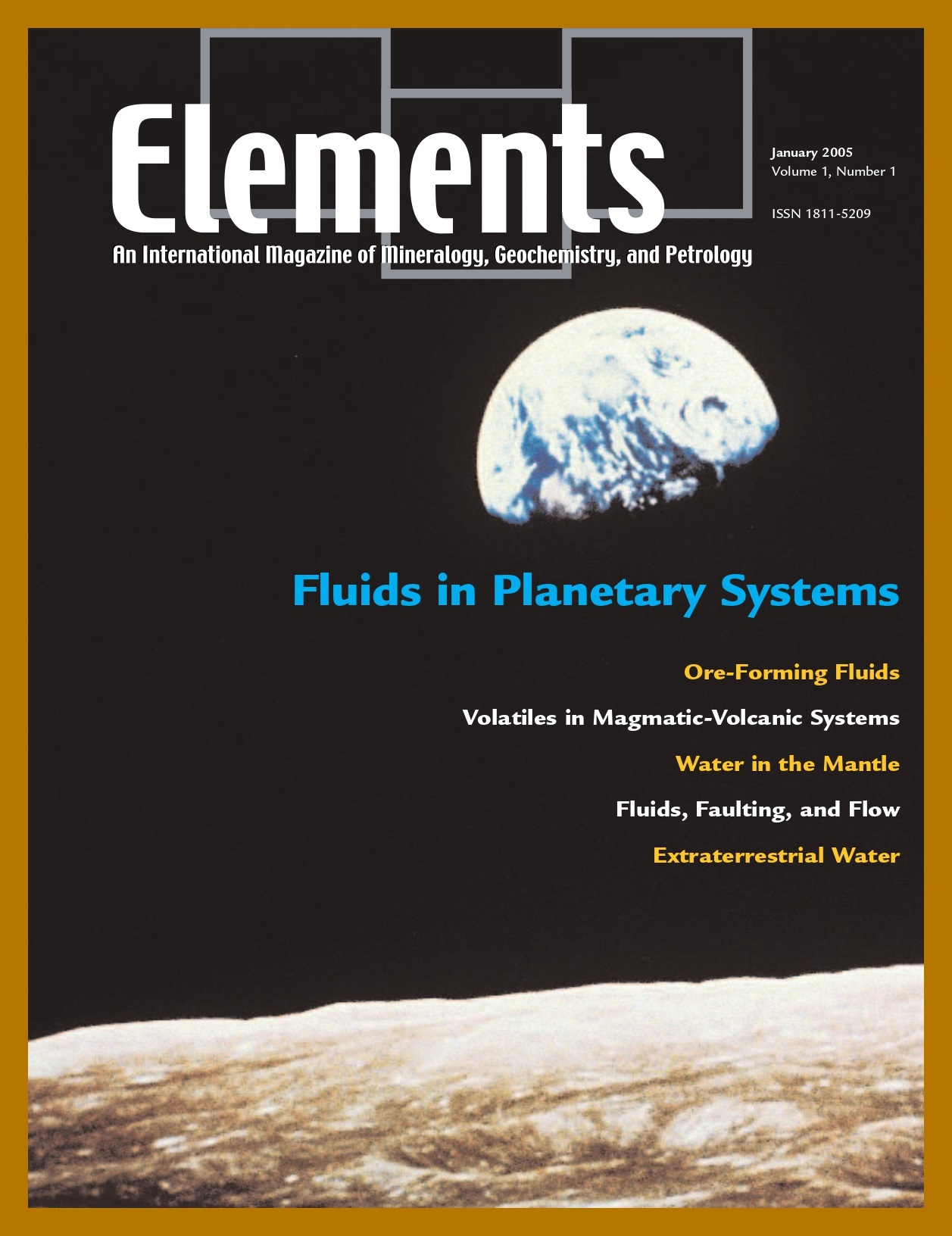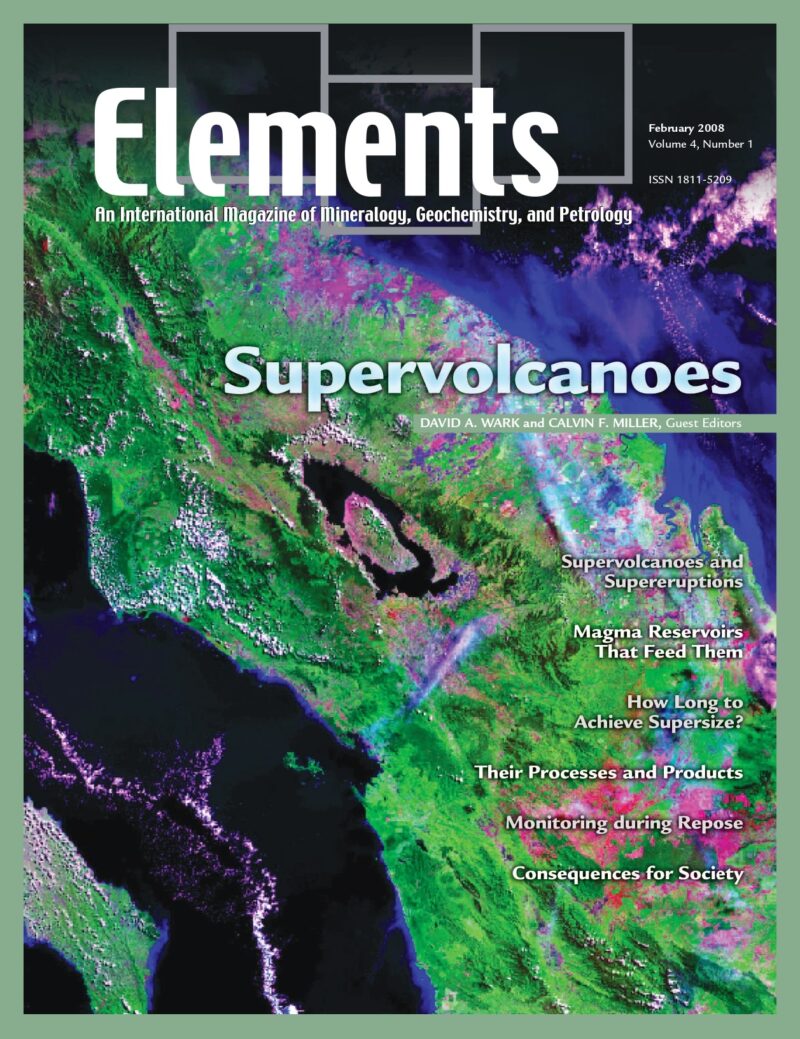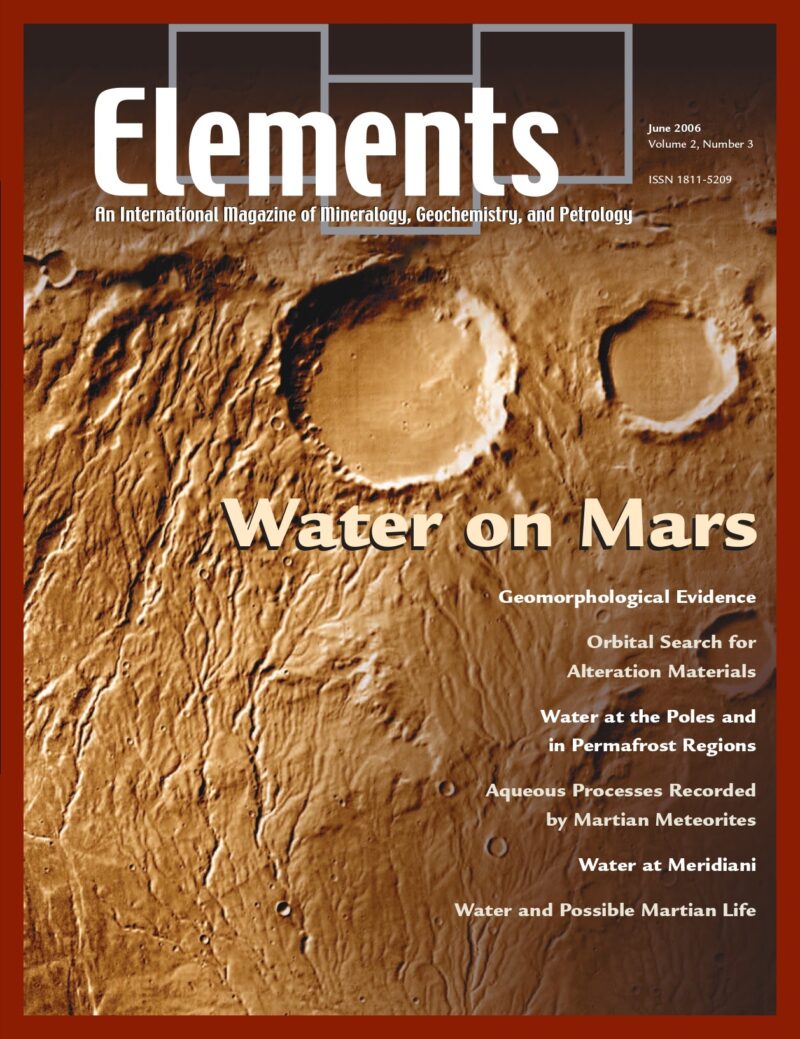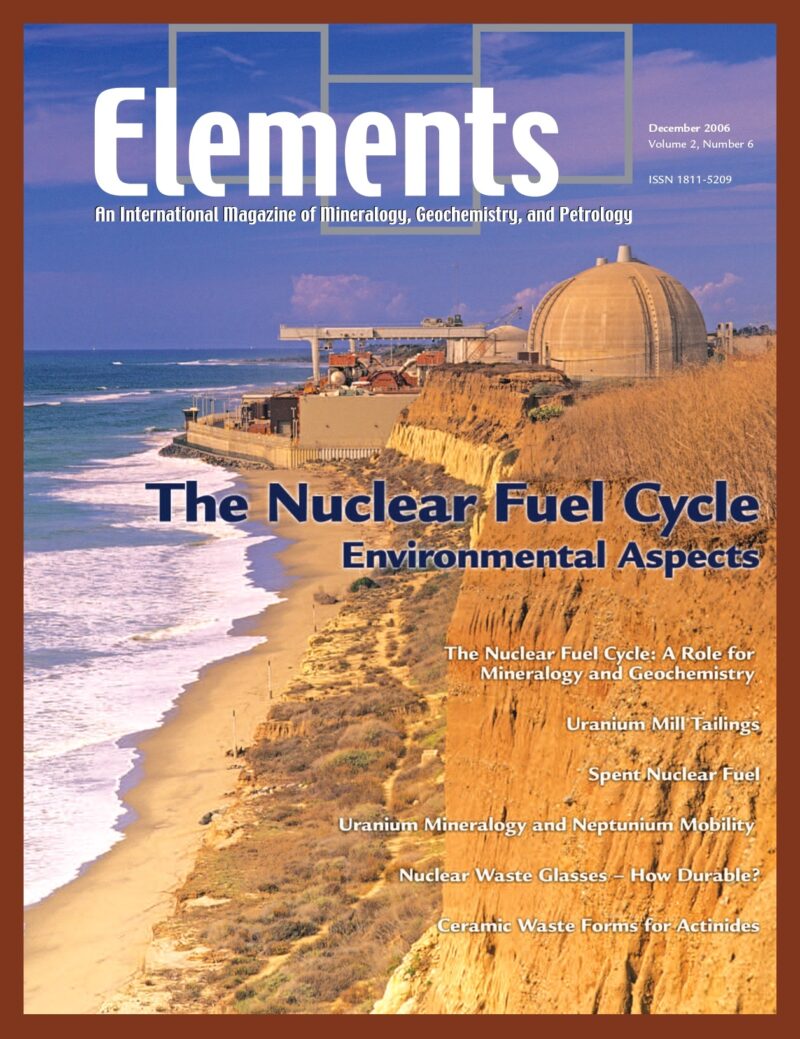
Large Igneous Provinces: Origin And Environmental Consequences, December 2005, Vol. 1, No. 5
June 28, 2024
User Research Facilities In The Earth Sciences, February 2006, Vol. 2, No. 1
June 28, 2024Fluids in Planetary Systems, January 2005, Vol. 1, No. 1
$20.00
Water and other geofluids play an important role in the geochemical and rheological evolution of the Earth and other bodies in the solar system. These fluids are responsible for the formation of hydrothermal mineral deposits, affect eruption behavior in volcanic systems and the geophysical properties of the mantle, and significantly affect the way in which rocks deform and fracture.
Fluids in Planetary Systems
January 2005, Vol. 1, No. 1
Water and other geofluids play an important role in the geochemical and rheological evolution of the Earth and other bodies in the solar system. These fluids are responsible for the formation of hydrothermal mineral deposits, affect eruption behavior in volcanic systems and the geophysical properties of the mantle, and significantly affect the way in which rocks deform and fracture. Water is required for life to develop and survive, and the search for life beyond Earth defaults to a search for water in the solar system. In this inaugural issue of Elements, current knowledge concerning the distribution and role of water in diverse geological processes and environments is considered.
Why You’ll Love Elements Magazine:
- Expert Contributors: Articles written by renowned researchers in the field of geoscience.
- Engaging Content: Join a community of readers who are passionate about Elements.
- Exceptional Quality: Each issue is printed on high-quality paper with stunning visuals and detailed illustrations that bring complex scientific concepts to life.
Order your copy of the January 2005 inaugural issue of Elements magazine today and explore the critical role of fluids in planetary systems.
Related products
-
Supervolcanoes, February 2008, Vol. 4, No. 1
$20.00Explosive super-eruptions from large volume, shallow magma systems lead to enormous and devastating pyroclastic flows, the formation of gigantic collapse calderas, and deposition of volcanic ash over continent-sized areas. Recognition that future eruptions from these “supervolcanoes” will undoubtedly have severe impacts on society—and perhaps on life itself—has led to recent public and media interest.
-
Water On Mars, June 2006, Vol. 2, No. 3
$20.00During the past several decades, spacecraft data have transformed the planets from astronomical objects into geologic worlds. Mars is the current focus of planetary exploration, and NASA’s objectives for this effort are based on the theme, “follow the water.
-
The Nuclear Fuel Cycle – Environmental Aspects, December 2006, Vol. 2, No. 6
$20.00Increasing concerns for the effects of global warming that result from rising greenhouse gas concentrations in the atmosphere have led to a reexamination, even enthusiasm, for nuclear power. Of all the current alternatives to fossil fuels, nuclear fission is the most important source of energy, accounting for 17 percent of the world’s electricity.




